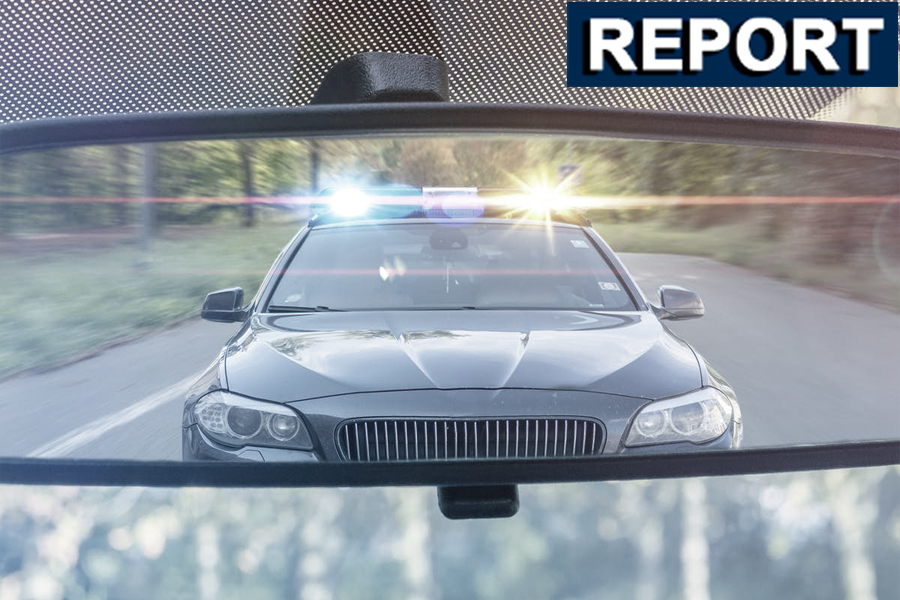CA Racial and Identity Profiling Advisory Board releases report on 2022 Police Stop Data

560 law enforcement agencies made 4,575,725 stops
Black individuals were searched at a rate 1.66 times the rate of White individuals
By California Attorney General’s Office
The California Racial and Identity Profiling Advisory Board (Board) today, Wednesday, Jan. 3, 2024, announced the release of its annual report on police stops across California. The report analyzes millions of vehicle and pedestrian stops conducted in 2022 by 560 law enforcement agencies in California — a major expansion from the 58 participating agencies in the previous report — under the Racial and Identity Profiling Act (RIPA). In addition to providing an in-depth look into policing in 2022, the Board’s report contains a wide array of best practice recommendations related to policing, with a particular focus on the impact of pretext stops, law enforcement interactions with youth, civilian complaint processes, police union effects on law enforcement accountability, and trainings on racial and identity profiling. Overall, the findings from the latest RIPA report are consistent with the disparities observed in prior years’ data with respect to perceived race, age, and disability status.
Acting Police Chief Joe Vigil said the Antioch Police Department participated in providing data for the report.
“California is leading the nation in identifying and addressing racial and identity profiling,” said Andrea Guerrero, Co-Chair of the RIPA Board and Executive Director of Alliance San Diego. “This report marks a major milestone as the first to include stop data from law enforcement agencies across the entire state. The scale of data that California is collecting allows us to say definitively that profiling exists — it is a pervasive pattern across the state. We must now turn to the hard work of ending profiling by bringing all the stakeholders to the table to ascertain and change the policies and the practices that enable it. I’m proud to work alongside community and law enforcement leaders on the RIPA Board who are having the tough conversations needed to bring about change. Public safety depends on all of us, and we invite all stakeholders to join the RIPA Board on our path to progress.”
“The annual collection of the RIPA stop data is making California communities safer by directing thoughtful and reflective reform,” said California Attorney General Rob Bonta. “Over the last several years, we’ve collected and analyzed information on more than 16 million police encounters in our state. In turn, with the support of our staff at the California Department of Justice, the RIPA Board has continued to issue key recommendations for our law enforcement agencies to promote transparency and take critical steps to enhance, and in some cases, repair the public trust.”
The information collected under RIPA includes data on peace officers’ perceptions of the demographics of stopped individuals, such as race or ethnicity, gender identity, sexual orientation, age, and disability. The Board collects this information to determine whether disparities can be found across demographic groups. The Board uses several well-established methodologies to analyze stop data to determine if bias may exist.
Some of the key findings from the Board’s report include:
- Number of Stops: A total of 4,575,725 stops were conducted by 560 agencies from January 1, 2022 to December 31, 2022.
- Population Comparison: Overall, the disparity between the proportion of stops and the proportion of residential population was greatest for Black individuals, who were stopped 131.5 % more frequently than expected.
- Search Rates: Black individuals were searched at a rate 1.66 times the rate of White individuals. Although stopped individuals perceived to be Black or Hispanic/Latino were searched at a higher rate relative to individuals perceived to be White, officers discovered contraband or evidence during stops in which they conducted searches at a lower rate for individuals perceived to be Black or Hispanic/Latino.
- Actions Taken: Officers reported not taking any reportable action during 75% of stops and taking actions during 25% of stops. Of all the racial or ethnic groups, stopped individuals whom officers perceived to be Native American had the highest rate of being searched (22.4%) and handcuffed (17.8%). Stopped individuals whom officers perceived to be Black had the highest rate of being detained curbside or in a patrol car (20.2%) and ordered to exit a vehicle (7.1%). Individuals perceived to be transgender men/boys also had actions taken towards them during half of their stops (50.0%).
In addition to the data analysis, the Board issues best practice recommendations that law enforcement agencies, the Legislature, local policymakers, the Commission on Peace Officer Standards and Training (POST), community members, and advocates should consider when implementing evidence-based and data-driven policy reforms geared to eliminate racial and identity profiling and improve law enforcement and community relations. Examples of the Board’s recommendations from the report include:
- Ending all pretextual stops and searches by taking actions such as ending consent or supervision searches as well as limiting law enforcement roll in the enforcement of traffic laws;
- Prohibiting the collection of field interview cards and entries into CalGang or any agency database in absence of an arrest;
- Adopting internal policies that prohibit law enforcement agencies and district attorneys from pursuing criminal charges for standalone resisting arrest without other citable offenses;
- Prioritizing a care-first model, reducing unnecessary criminal justice intervention or law enforcement response in favor of a community-based response for youth with disabilities and youth experiencing mental health crises;
- Considerations related to the efficacy of school police and law enforcement contacts, such as identifying specific student conduct or statutory violations that require disciplinary action that should be handled by school staff, and for which law enforcement officers should not be involved;
- Calling for further research on how Police Officer Bills of Rights and provisions or agreements with unions affect police accountability;
- Amending Penal Code section 832.5 to include a standardized definition of “civilian complaint”;
- Reviewing all available video footage and incorporating root cause analysis into complaint investigations; and
- Seeking community and Board input early in POST’s course development process and integrating feedback into the course curriculum before finalizing the course.
For more on RIPA and other criminal justice data, members of the public are encouraged to visit OpenJustice, a data-driven initiative that works to increase access to criminal justice data and support the development of public policy.
A copy of the report announced today is available here. More information about the Board is available here.
the attachments to this post:

Police stops report – Policing Project




















